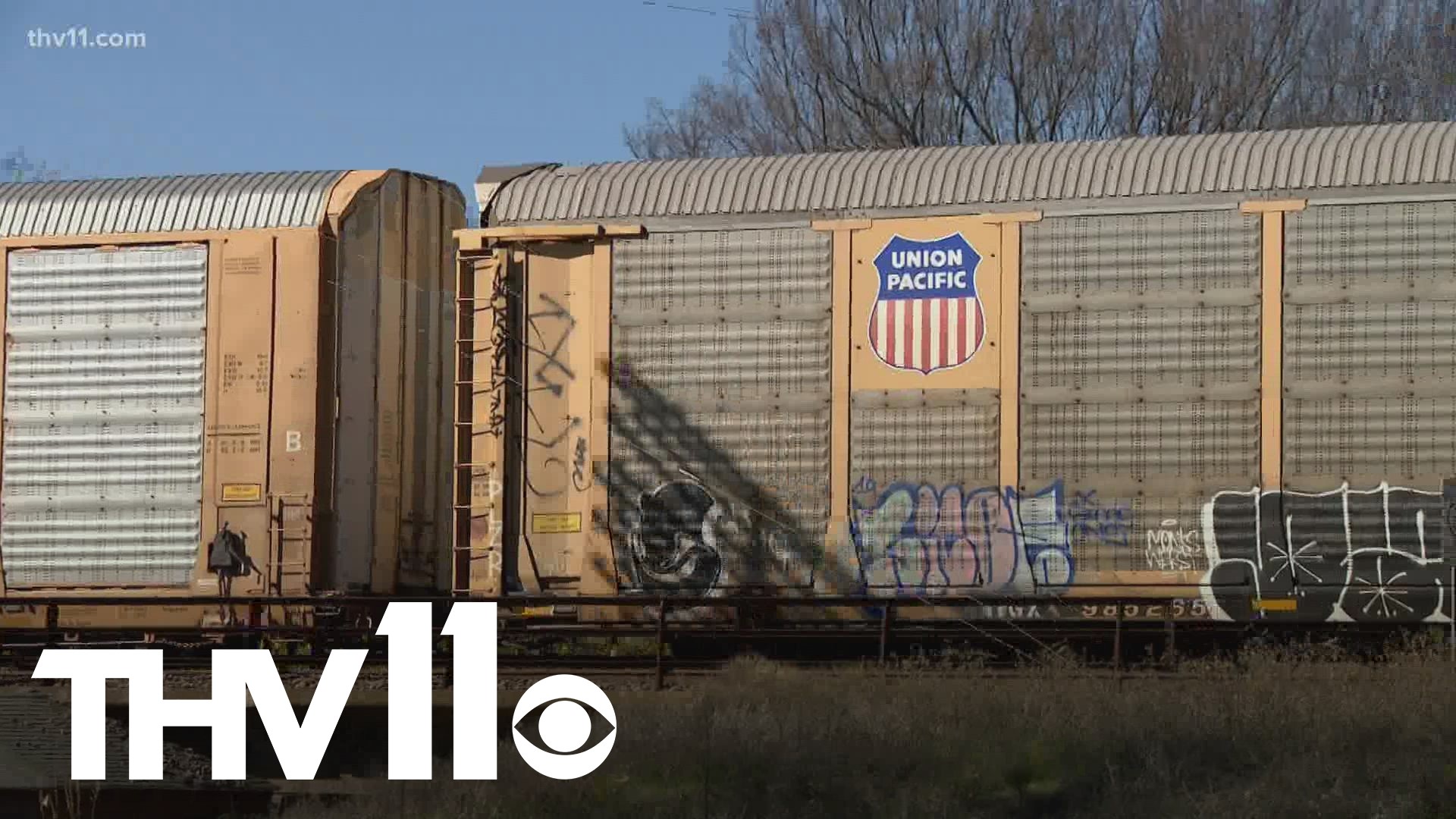LITTLE ROCK, Ark. — An important "vein" that has been a crucial part of our nation could soon come to a screeching halt— due to a possible rail strike.
"Somewhere around 30% of all freight, depending on how you measure it, it does go through rail," UCA economist, Dr. Jeremy Horpedahl, said.
At least, it's a possibility.
"If a major component like rail is shut down, that can be losses, a lot of money," Dr. Horpedahl said.
"A lot of goods that aren't going through it, and people that might be out of work because of that as well," he added.
What has caused this is actually a months-old conversation.
On Tuesday, the Biden Administration called for Congress to intervene in ongoing contract disputes between rail workers' unions and the railroads.
When we reached out to Union Pacific in North Little Rock, they gave us a statement that read in part:
"The railroads remain willing to enter into agreements based on the PEB-recommended framework. Should the unions without ratified agreements remain unwilling to do so, they are expected to strike, and Congress may need to intervene, just as it has in the past, preventing further disruption to the struggling supply chain."
That statement went on to say, "If there is no resolution this week, we will begin to take the necessary steps to prepare for a safe and orderly shutdown."
That poses the question— what happens if a shutdown were to actually happen?
"Even being shut down for a day is a problem," Dr. Horpedahl said. "Even if the strike doesn't happen, they have to start shutting things down, even with the potential for a strike."
Dr. Horpedahl put it bluntly and explained how any amount of time without trains moving can cause problems.
"Estimates I've seen where they say about a billion dollars a day of economic impact, I think those are probably in the ballpark of what it would be," he described.
That wouldn't just affect the country as a whole, but it could also impact Arkansas too.
"When you have a backlog in inventory from an economic perspective, that also potentially creates the potential for layoffs," Dr. Bruce James, an economy professor at Philander Smith, said.
Dr. James also added that this may be one more thing for Arkansans to worry about.
"If we look at what happens to us, basic consumer goods such as food," he said. "There's a huge impact on prices, just in that area alone."
While we may not know if a shutdown will actually happen, there is one thing that's certain. If this were to happen, the effects of a shutdown could stick around for a while.
"How much the supply chain works well most of the time, it's only when they're not working that we might notice a lot of bad effects," Dr. Horpedahl said. "That's the big picture for me."
The House has passed a bill out to avoid a shutdown. Soon the bill will head to the Senate, with the ultimate goal of landing on President Biden's desk— something he's pushing to happen quickly.

